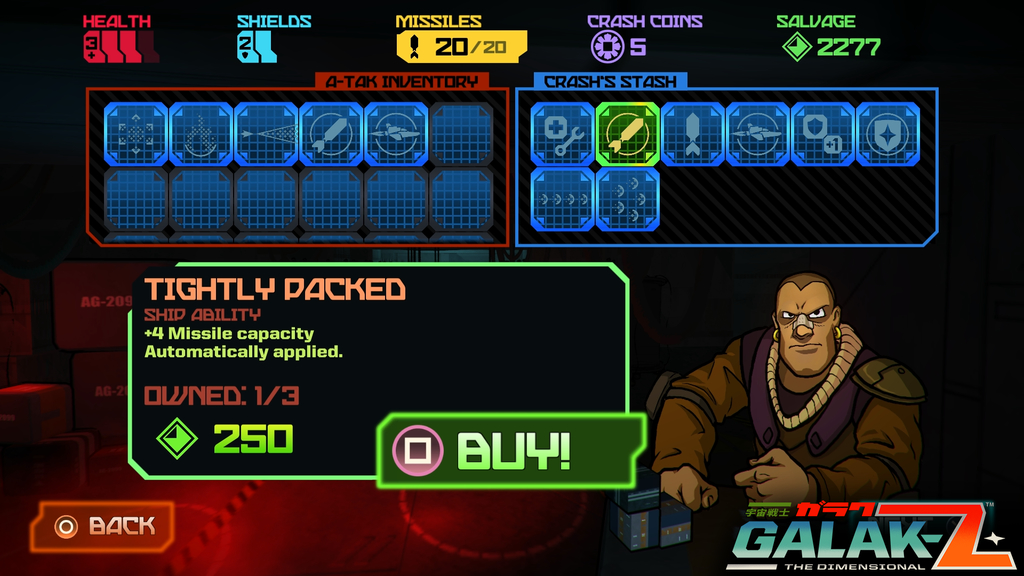Cleaning up space one killer bug at a time.
Galak-Z: The Dimensional draws inspiration from two main sources: classic arcade shooters and old Japanese animé. The marriage of sci-fi action and campy dialogue works well for Galak-Z, as the playful mission banter compliments the tough-as-nails difficulty well. Failing missions repeatedly doesn't feel as devastating when you have the charismatic protagonist and his trusty commander to help alleviate the tension. Make no mistake, Galak-Z is an exercise in the "practice makes perfect" gameplay philosophy, but it manages to remain fresh and fun in the face of constant player death and failure.
Much of Galak-Z's charm comes from its distinct presentation. Again, Japanese animé is a strong influence, and it directly affects the structure of the game. Galak-Z is separated into five seasons, and each of those seasons contains five episodes. The goal is to complete five episodes in a row to unlock the next season. The game presents each episode as something you might encounter on TV, right down to individual writing credits for each one. In addition, seasons end with flashy credits sequences and fantastic retro music. They're subtle attempts at giving Galak-Z some personality, and they work.
It feels like developer 17-BIT could have pushed the TV show presentation even further, perhaps with a stronger focus on narrative on an episode-to-episode basis. The protagonist A-Tak and his new commander Beam share dialogue with each other on each mission, which allows players to learn more about the confident pilot behind the ship. It all feels a bit slight though, especially with the sudden transitions from one episode to the next. Another cutscene here or there would draw players into the world of Galak-Z better.
But let's be honest, narrative isn't the most important aspect of Galak-Z. This is a game about shooting enemies with lasers, dying in the process, and completing episodes repeatedly in an effort to improve and move on to the next season. It sounds simple enough, but there's plenty of depth and complexity to be found in Galak-Z. The controls immediately spring to mind, as it takes a while to grow accustomed to the many boosters and thrusters. Getting the movement down is hard enough, but trying to do so while avoiding enemies and returning fire can be downright chaotic at times. Once it all lines up though—shooting missiles at multiple enemies while strafing left and right to avoid lasers—it feels great. Then the game allows players to transform into mechs in season two, and it gets even better.
I also found that the more I played Galak-Z, the more I learned to pick my battles. The main ship contains shields that recharge, but fighting multiple enemies at once means those shields go down constantly. It doesn't take a lot to result in a game over, so I found stealth to be a valid tactic once I reached the second season. There are definitely losing battles out there in space, and sometimes it's best to just survive and move on to the next episode.
There is a risk/reward methodology at play, because fighting more enemies results in more salvage. That salvage is used to purchase upgrades in between episodes, though many can be found out in space during missions. The player has to ask: Do I risk taking on a group of Void Raiders, or do I avoid them and move on to the next objective? These moments occur constantly, and they emphasize the nervous tension that permeates within each episode in Galak-Z.
The episodic format, though, works against Galak-Z in some notable ways. The game randomly generates missions and even mixes up writers on a regular basis, but the missions don't differentiate themselves enough. Most of them involve finding an item, blowing something up, or a combination of the two while A-Tak and Beam chat about a few different subjects along the way. It adds a level of tedium to the game in extended play sessions, especially because players have to journey back to the initial warp point at the end of each mission.
Galak-Z rewards players who stick with it. There's an overwhelming sense satisfaction that comes from seeing player growth, and I know I improved as I played more of the game. I learned enemy patterns and knew when to pick my battles, which is a stark contrast to when I first loaded the game up and went in guns blazing. The mission structure and narrative leave something to be desired, but when I think of Galak-Z, I think of my many triumphs and the elation I felt when I completed a season. Few games manage to instill that feeling of triumph quite like Galak-Z.
-
Fantastic arcade shooter gameplay
-
Provides a respectable challenge
-
Controls have a steep learning curve
-
Cool anime TV show aesthetic
-
Lack of meaningful narrative moments
-
Mission variety falls short
Galak-Z Screenshots
-
Galak-Z Screenshots #1
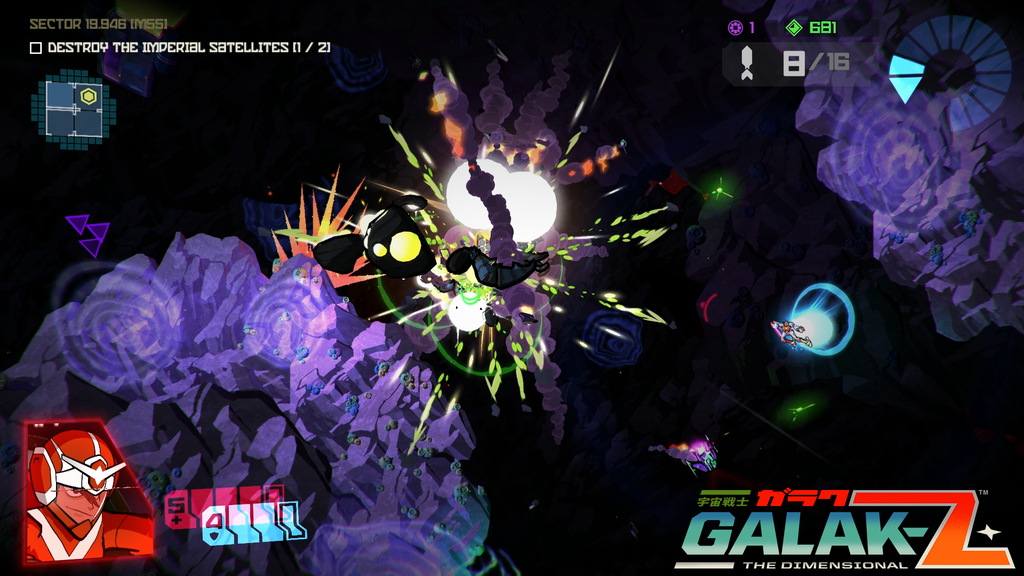
-
Galak-Z Screenshots #2
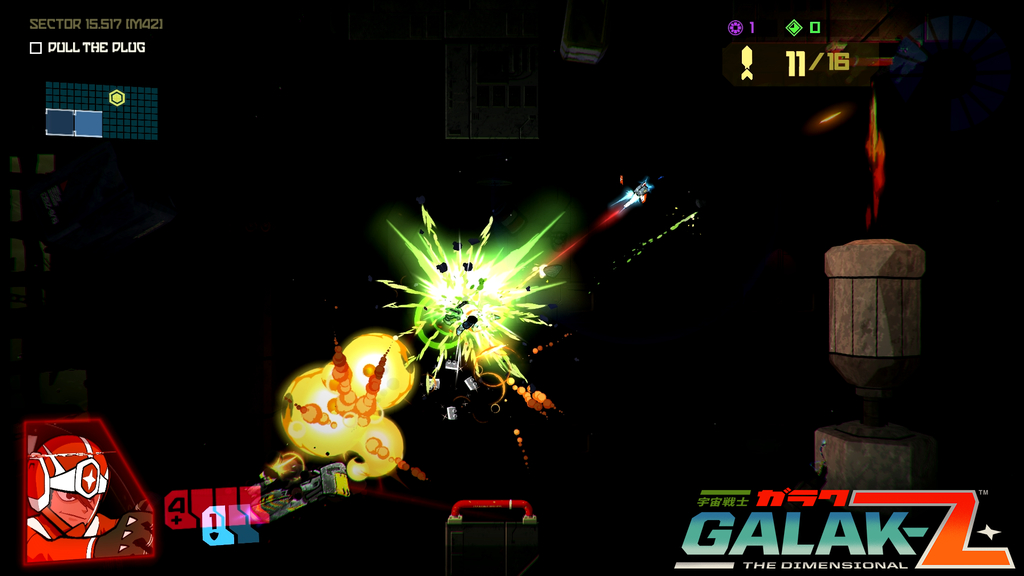
-
Galak-Z Screenshots #3
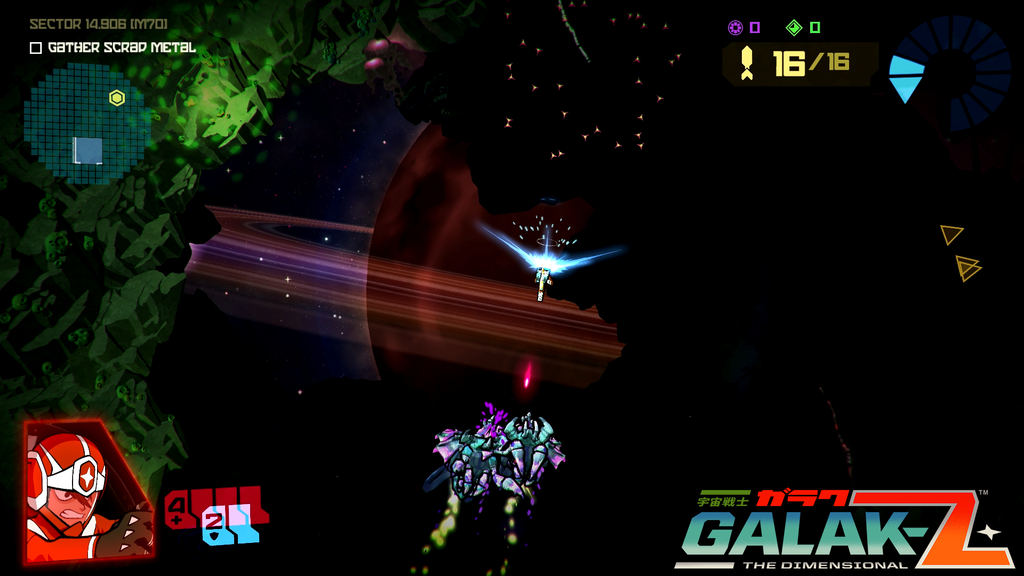
-
Galak-Z Screenshots #4
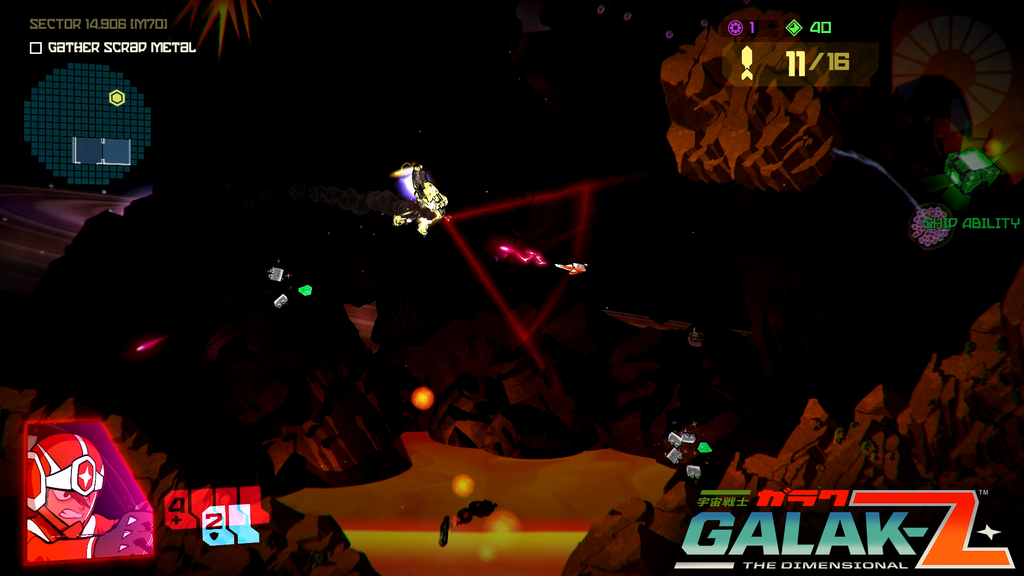
-
Galak-Z Screenshots #5
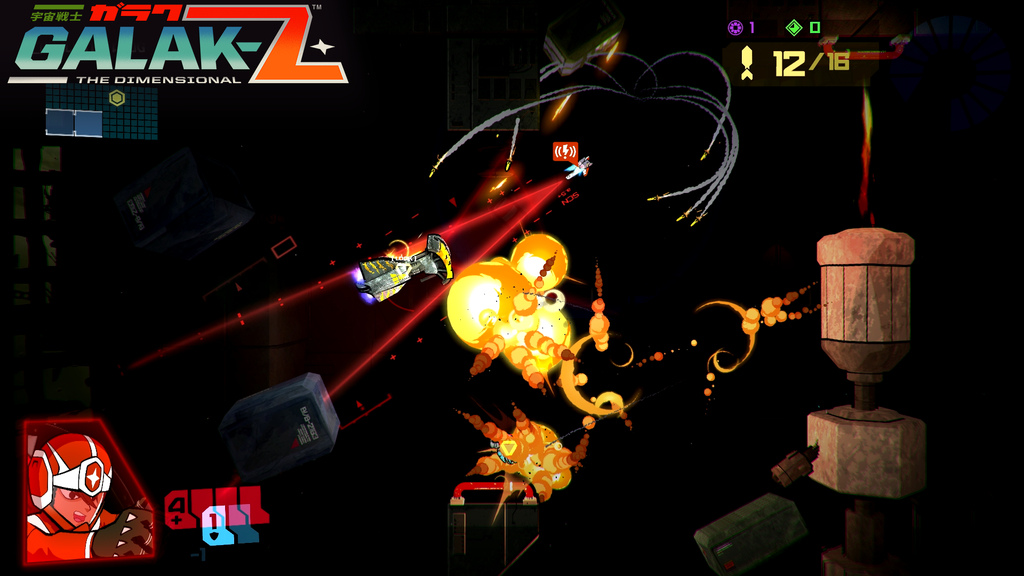
-
Galak-Z Screenshots #6
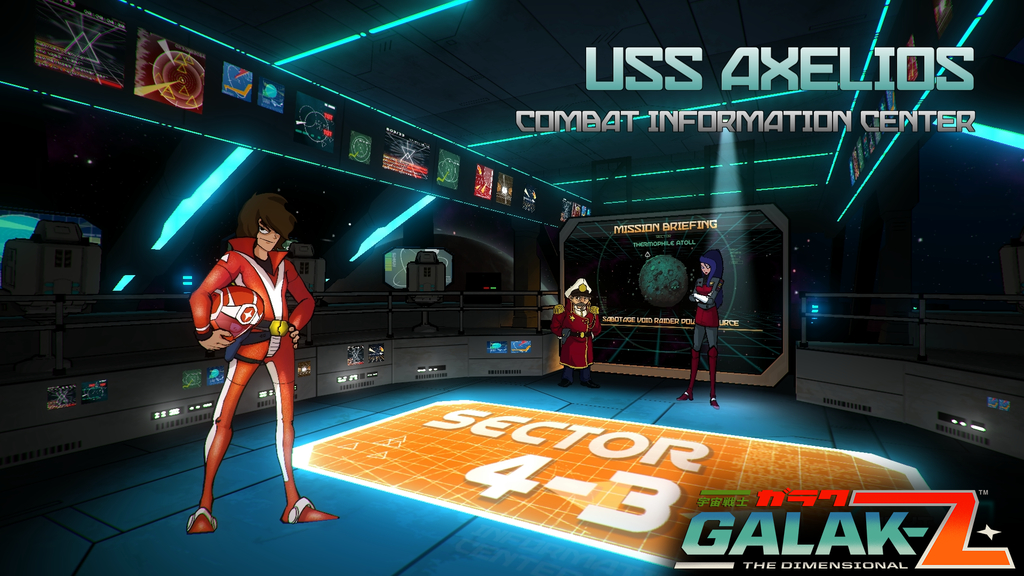
-
Galak-Z Screenshots #7
